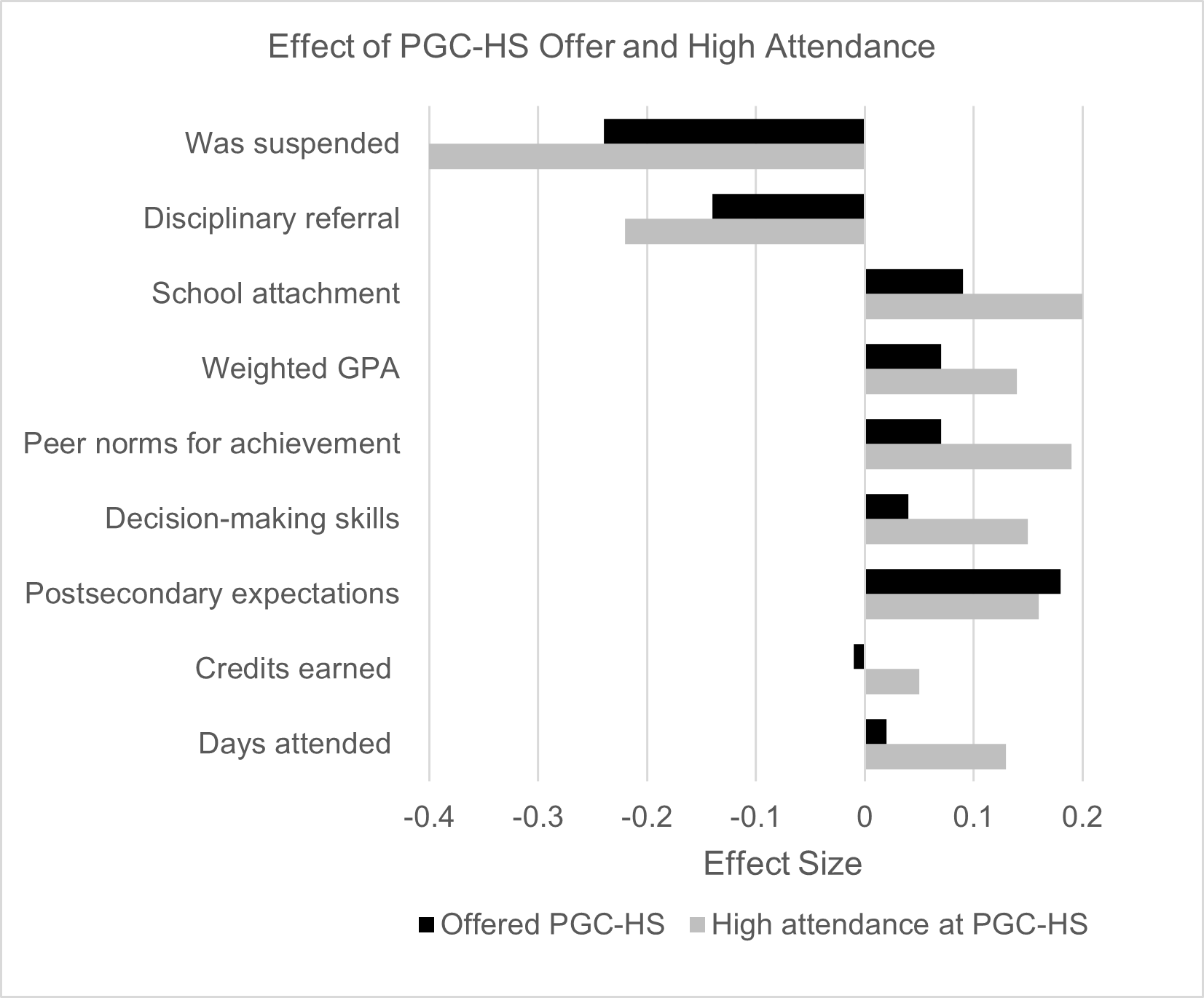Effects of Cross-Age Peer Mentoring Program Within a Randomized Controlled Trial
Eric Jenner, Katherine Lass, Sarah Walsh, Hilary Demby, Rebekah Leger, and Gretchen Falk
How does a cross-age peer mentoring program affect ninth-grade outcomes?
Ninth-grade students who were offered Peer Group Connection High School (PGC-HS) were less likely to receive a suspension or disciplinary referral and self-reported higher levels of school engagement and postsecondary expectations. However, offering the program had no effect on academics (credit attainment, attendance at school, GPA) and other non-cognitive skills (e.g., decision-making skills).

Interpreting this chart: The chart shows effect size estimates for each outcome at the end of the students’ ninth-grade year. The black bars indicate the estimated impact of offering the program (regardless of actual attendance), whereas the gray bars indicate the estimated effect of the program among students who had regular attendance at weekly peer group meetings.
How does dosage affect the program’s impact?
Exploratory analyses suggest that, in addition to reducing disciplinary events and improving self-reported school engagement, students who regularly attended the weekly meetings achieved higher GPAs and self-reported higher levels of decision-making skills and peer norms for academic achievement compared with a similar group of students who were not offered PGC-HS.
What is the PGC-HS program?
PGC-HS aims to prevent disengagement and school dropout during the transition from middle to high school. To achieve these goals, PGC-HS fosters supportive relationships between students and strengthens their connection to the school community by placing ninth graders into small peer groups led by a pair of 11th- and 12th-grade peer leaders. Students meet with their peer group and leaders weekly to complete a structured curriculum of engaging, hands-on activities to practice academic, social, and emotional skills.
How did we estimate the impact of PGC-HS?
The experimental study included 1,351 ninth-grade students at eight high schools in North Carolina. At each school, ninth-graders were individually randomly assigned to either participate in PGC-HS or receive a class-as-usual control experience. Students in both groups completed a survey at the beginning of the fall semester of their ninth-grade year and again at the end of the spring semester. We collected baseline (eighth grade) and ninth-grade administrative records from each study school. We compared the end-of-ninth-grade outcomes for the students offered the program to the outcomes for students offered the control condition. To further understand the potential impact of the program, we also compared outcomes for a group of students who had high attendance at the program to a similar group of students in the control group, providing promising evidence of the effect of PGC-HS among high attendance students.
Full Article Citation:
Jenner, E., Lass, K., Walsh, S., Demby, H., Leger, R., & Falk, G. (2022). Effects of Cross-Age Peer Mentoring Program Within a Randomized Controlled Trial. Journal of Research on Educational Effectiveness. DOI: https://doi.org/10.1080/19345747.2022.2130119.
